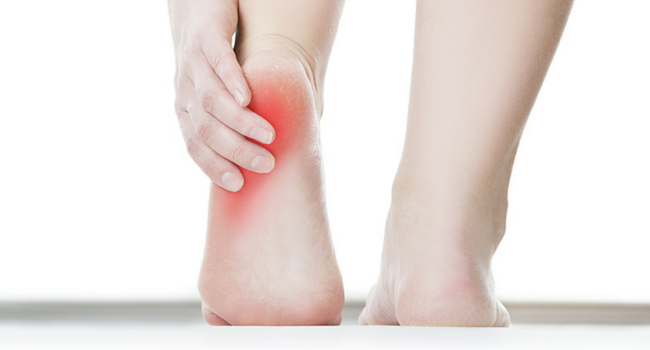
What is a Heel Pain?
Pain associated with heel pain is often confused with another condition called plantar fasciitis—which refers to inflammation in plantar fascia ligament. A heel spur, on the other hand, is a piece of bone that forms on the heel bone itself.
In most cases, heel spurs do not cause any symptoms. Although there are cases where heel spurs are associated with intermittent or chronic pain. However, the heel spur itself is not necessarily the root of the pain. Instead, the pain is attributed to the inflammation or irritation of the plantar fascia ligament. Pain is usually worst in the morning when you first wake up, but it recedes as ligaments loosen.
Heel Pain Causes
Heel pain take months to develop and may go completely unnoticed. Heel spurs are most often a result of too much stress or pressure on the ligaments in the foot. They can also be the result of repeated tearing of the membrane that covers the heel bone. The same physical activities that cause plantar fasciitis can result in heel spurs.
Other significant factors that contribute to the development of heel spurs include:
- Mechanical defects that cause gait abnormalities
- Tight calf muscles that limit ankle flexibility
- Being overweight or obese
- Poorly shoe choice
- Activities that demand extended time on your feet
Treatment Options
Heel pain cannot be diagnosed through a physical exam; they can only be seen using an x-ray. In fact, heel pain is diagnosed based off images your doctor takes while looking for something else. When heel pain persists for more than a month, you should contact your podiatrist. He or she may recommend the following non-invasive treatment methods:
- Various stretching exercises
- Shoe replacement
- Custom orthotics
- Padding
- Physical therapy
Most cases of heel pain can be treated with conservative methods, but anti-inflammatory medications or injections may also be recommended. These medications not only reduce pain, but inflammation too.
If you feel that you are suffering from heel pain, don’t hesitate to reach out to Yale Podiatry Group. You can fill out our online appointment request form or give us a call at (203) 734-4806.